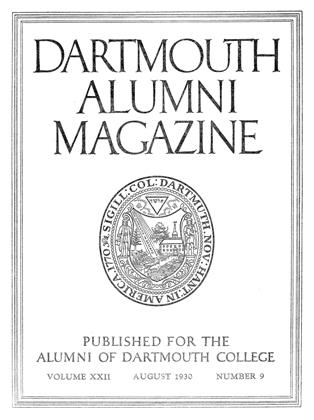. The Report of a Conference held at Northwestern University, Nov. 15-16, 1929. The Abingdon
Press.
Professor John M. Mecklin of the Department of Sociology has contributed to this symposium of religious and social thinkers an important paper on Religion and the SocialConscience. He begins by pointing out the dualism that has run through American life from the very inception of the nation: the place of religion as outlined in the Constitution and the very different place of religion in the immediate life and thought of the people. The Founding Fathers stipulated an absolute separation of church and state and wished to make religion a private affair. But the two most influential racial stocks in America, the Puritans and the Scotch-Irish (who may be termed the Puritans of the South), have tended to make all matters of public morals the concern of religion. Thus the tradition of the Constitution is faced by the unofficial but more potent tradition of the United States as a Christian nation. Prohibition, Sabbatarian legislation, the antievolution and anti-Catholic movements, may all be traced to this latter tradition.
The Church to-day must choose between two roles. Either she must remain true to her finest traditions, shape the moral sentiments and mould the social conscience, leaving to others the practical problem of drafting programs and effecting the inevitable compromises, or she must herself take up the task of practical reform. If she chooses the latter alternative, she may discover to her sorrow that she has sold her birthright for a mess of pottage. The Kingdom of God taught by Jesus was first of all religious and only secondarily moral. There is, indeed, something in the nature of religion itself that unfits it to serve as a principle of social control. "It cannot be too strongly enforced that the precepts of the great Founder of Christianity were addressed primarily to the hearts of men, while it is the function of law and the means of social control to regulate external conduct only."
Professor Mecklin gets down to fundamentals and argues with all the clarity and cogency which we are accustomed to expect from him.
 View Full Issue
View Full Issue
More From This Issue
-
 Article
ArticleMy Love for Languages
August 1930 By Dr. James A.Spalding '66 -
 Class Notes
Class NotesCLASS OF 1929
August 1930 By Frederick W. Andres -
 Lettter from the Editor
Lettter from the EditorEditorial Comment
August 1930 -
 Article
ArticleMidsummer Musings
August 1930 By Phil Sherman -
 Article
ArticleDebating at Dartmouth
August 1930 By E. V. Simrell, Faculty Advisor -
 Article
ArticleAgain Among the Hills
August 1930 By Arthur Dewing
William Kilborne Stewart
Books
-
 Books
BooksDEATH on SCURVY STREET
June 1929 -
 Books
BooksBriefly Noted
MARCH 1966 -
 Books
BooksCONGRESS AT WORK
October 1953 By ABRAHAM HOLTZMAN -
 Books
BooksHAROLD LLOYD'S WORLD OF COMEDY.
OCTOBER 1964 By CLIFF JORDAN '45 -
 Books
BooksITALY ON FIFTY DOLLARS
By G. C. W -
 Books
BooksTHE BOOK OF AMERICAN CLOCKS
February 1951 By Harold G. Rugg '06




